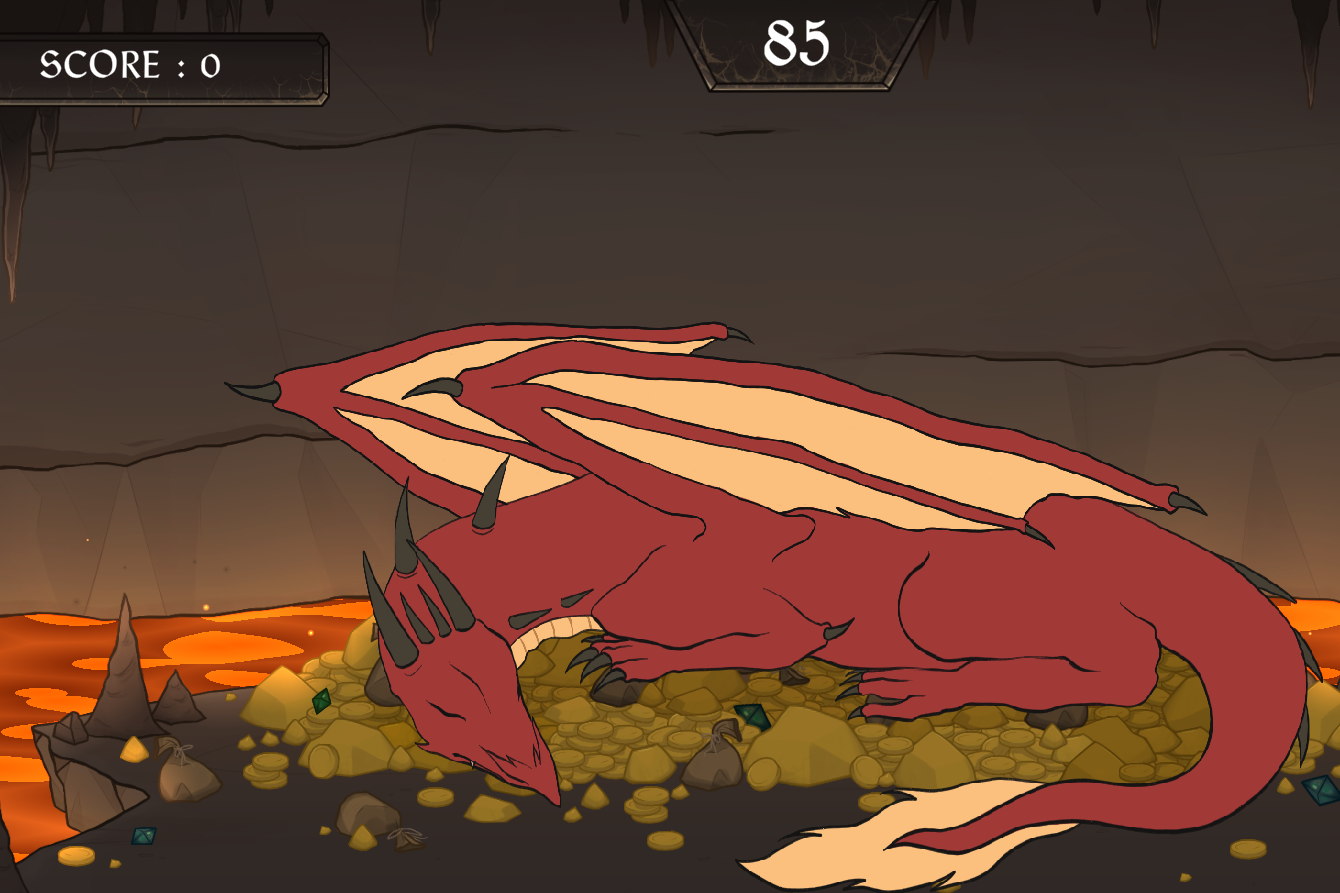
Gold Fishing
This was my team's showcased game at Gotland Game Conference 2023 which was nominated for the prize category "Best Arcade Experience". My role in this project was programmer and product owner. Alongside me worked Aaditya Kalluri, Moa Carnbro, Adarsh Kumar, Vlad Lupu, Essi Karoliina Hirvioja and Wilma Svensson.
Gold Fishing is a game in which you try to steal as much gold from a dragon as possible within a time limit. However, you have to steal it from a distance using a fishing rod while the dragon is asleep. If it wakes up, you must quickly hide behind a curtain of invisibility or perish to it's flames
Gold Fishing was created in the context of the course "Game Production 1 - Arcade Games" The task was to create an arcade game with a unique input device that wasn't just a controller or a keyboard. In Gold Fishing, every part of the game except the screen showing the dragon was physical. Players would use a physical fishing rod to obtain bags of gold. Bags were then placed on buttons in a chest next to them to give in-game points. To hide, players had to close a curtain in front of them, which pressed buttons to inform the game that the player was hidden. The game was first pitched by me and Adarsh Kumar. As the product owner of the game I directed different parts of production and was responsible for a lot of the design decisions in regards to player experience.
Throughout the project I learned a lot about working in a team from the position of a creative lead. One of the challenges came from not understanding how important a centralized design document is to communicate your design to the team. This resulted in me spending too much time with the process of building the booth even though we had a separate build responsible, all because I felt I needed to oversee the process. This taught me the importance as creative lead to establish and communicate the vision of any project early and clearly so that team members of any discipline can more easliy do their work independently.
I also learned the importance of transparency and honesty, especially when set-backs arise. As someone who constantly needed to keep the scope of the project in mind, any slowdowns or possible roadblocks were very important to be made aware of in case the scope would need to change as a result. For future projects this helped me let go of any damage to my own ego when announcing that things I was working on were taking longer than expected, since owning up to reality is the only way to keep a clear course forward during production, even if it means rescoping.